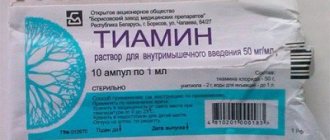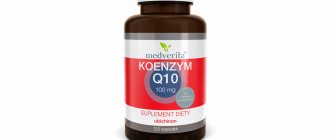What associations does the word “sulfur” evoke? For most, it’s rotten eggs, fire and matches. Meanwhile, this mineral occupies an important place in the human body, although its functions, at first glance, are not as noticeable as those of other useful substances. Sulfur does not give the body shape, as does, for example, calcium, which forms bones and teeth. It does not soothe muscles or provide restful, healthy sleep like magnesium. It will not affect sexual activity like zinc, which affects testosterone production. You can take even a small amount of iodine and almost immediately see its work - the functioning of the thyroid gland will improve. When taking sulfur, you should not expect any quick visible effects. It is stored in the body in the “background”, so to speak, but at the same time plays its own role, only its assigned one.
What is sulfur and its role in the human body
Sulfur for the human body is a necessary element that is part of many cells. The mass of the mineral is 0.24% of a person’s weight.
Biological role of sulfur:
- With its help, disulfide bridges are formed in the body, with the help of which protein activity occurs.
- Participates in energy transfer between cells.
- Performs a transport function in the body.
- Sulfur is responsible for the coagulation of leukocytes, moves methyl groups and promotes fat metabolism.
- The mineral is part of insulin, coenzymes, and histamine.
- Sulfur in the body has a rejuvenating effect.
Advantages and disadvantages
If you carefully study the reviews of consumers who managed to test the effects of the drugs on their sites, then in these comments you can find both positive and negative responses. After all, the product has a number of disadvantages.
Pros and cons of colloidal suspension
Advantages Disadvantages has an effective, long-lasting effect; the drug has acaricidal properties; mixing of the working mass with other substances is allowed; sulfur vapors do not harm plants; can be used as a soil fertilizer; inexpensive product available in convenient dosage forms
is a toxic chemical, which requires the use of protective equipment and precautions; restriction of use near bee farms; crops cannot be processed at high air temperatures; not suitable for spraying balcony and indoor plants
The described disadvantages relate more to the inconvenience of using the drug than to its effectiveness in combating diseases and pests. Therefore, you can count on the maximum benefits of colloidal sulfur when growing garden crops.
Useful properties of sulfur
Sulfur has many beneficial properties:
- takes part in tissue metabolism;
Sulfur is important for the human body as it performs a number of functions. - is part of amino acids;
- maintains oxygen balance in the human body.
- promotes active activity of the nervous system;
- maintains normal sugar balance;
- is one of the powerful antiallergens;
- Great for boosting immunity.
- Humans need sulfur no less than vitamin D;
- participates in the proper formation of bones (which is especially important during the development of a child);
- improves the performance of ligaments and joints;
- responsible for collagen synthesis;
- has a healing effect;
- removes toxins and waste from the liver;
- synthesizes melanin and keratin;
- participates in the formation of vitamins, including biotin and lipoic acid;
- prevents cramps and joint pain.
What if it's not enough?
Sulfur deficiency is extremely rare and only occurs in those who receive virtually no protein foods
. Strict vegetarians should be especially careful when planning their diet. They need to regularly consume plant foods containing essential amino acids. Symptoms of sulfur deficiency are mainly skin and hair problems. A lack of the substance can also cause muscle pain, disturbances in the nervous system, circulatory problems, inflammatory reactions and decreased immunity.
Indications for use
Sulfur is used in folk practice and medicine, for example, in the field of dermatology: with the help of sulfur, doctors “fight” the symptoms of scabies, eczema and folliculitis. The mineral is used for seborrhea, psoriasis or hair loss. Doctors also prescribe it when diagnosing various skin acne, sycosis and herpes zoster.
In the presence of high pigmentation of the epidermis or the presence of freckles, sulfur can be used as an exfoliant, and in case of constipation - as a laxative. Very often, sulfur helps with chronic hemorrhoids. It is also prescribed as an anthelmintic.
When diagnosing polyarthritis or sciatica, the mineral is used as an irritant, and in the presence of progressive paralysis, body temperature is increased using a sulfur suspension. Sulfur is also used for severe poisoning with mercury, metals and hydrocyanic acid. At home, sulfur is used for inflammatory processes of the gums.
Medicines made from sulfur
In its pure form, sulfur is sold in pharmacies in the form of sulfur powder, but it is rarely recommended for severe skin diseases.
More often, sulfur ointment is used for dermatological problems. In addition to the main substance, it contains water and petroleum jelly, which form an emulsion. The ointment has an antimicrobial effect and restores damaged skin epidermis. In addition, it is recommended to combat acne and pimples. It also has an antifungal effect.
Sulfur soap is used for medicinal and cosmetic purposes. Soap with a sulfur content of 10% or more has a healing effect on the skin. And soap containing about 3% of the substance is used for prevention, cleansing the skin, fighting acne, etc.
Sulfur is included in medicinal plasters for calluses.
Used as part of laxatives to treat constipation. Natural mineral water often contains dissolved hydrogen sulfide.
Hydrogen sulfide water is used in various diets and health procedures; hydrogen sulfide baths are beneficial for the skin. They are also recommended for joint diseases - arthritis, rheumatism, etc. Hydrogen sulfide water has a healing effect on the musculoskeletal system and lowers blood pressure.
Finally, sulfur is included in many dietary supplements, along with other macro- and microelements.
Symptoms of lack of sulfur in the body
There are often cases when a lack of sulfur occurs in the human body; its deficiency is immediately visible, indicated by the following symptoms:
- joint pain;
- liver diseases and pathologies are activated;
- tachycardia;
- increased skin oiliness;
- metabolic processes are disrupted;
- chronic fatigue appears;
- allergic reactions appear;
- hair falls out and becomes dull;
- immunity decreases;
- constipation appears.
Where is it used?
Pharmacy sulfur is used to treat various diseases; medicines based on this trace element can quickly eliminate the manifestations of articular and dermatological pathologies.
What does sulfur help with:
- allergies and dermatological diseases;
- bronchial asthma;
- arthritis, scoliosis, bursitis, osteoarthritis, myositis, sprains;
- convulsions;
- as an anti-inflammatory and analgesic;
- to strengthen the immune system, speedy recovery after long-term illnesses;
- to reduce the body's need for insulin in diabetes mellitus.
Read also: Erotic massage at “Profsoyuznaya”
In cosmetology, products with sulfur are used to prevent early aging, improve the appearance of the skin, give strength and shine to hair, and strengthen nail plates.
Sulfur is used in cosmetology
For external medicinal preparations, precipitated (purified, combustible) sulfur is used; it is part of sulfur ointment, which is prescribed for the treatment of scabies, seborrhea, and psoriasis. In combination with lanolin, petroleum jelly, and stearic acid, the microelement has an anthelmintic, exfoliating and anti-inflammatory effect - such drugs are prescribed to eliminate rosacea and scalp lesions.
Purified sulfur in the form of tablets is used in the treatment of enterobiasis, constipation, and as an external remedy for the treatment of dermatological pathologies. In the form of a yellow powder, the product is used in folk and traditional medicine; it can be used internally and in the preparation of medicines.
Homeopathic sulfur has a weak therapeutic effect; it is produced in the form of granules; the drug must be taken for a long time under the supervision of a specialist.
Sulfur is useful not only for people, but also for animals - the feed product is included in vitamins for animals. This microelement is also used to enrich fertilizers in agriculture, in the production of steel and rubber, explosives, and pyrotechnics.
Oversupply
Sulfur is very useful for the human body, but in nature there are also mineral compounds that are highly toxic - these are hydrogen sulfide, carbon disulfide and various sulfur oxides. They are produced in hazardous industries, fires or chemical warehouses when environmental conditions are violated.
Some researchers believe that the use of sulfur-containing preservatives contributes to the development of bronchial asthma.
Reasons for excess sulfur: large intake of sulfur and its oxides into the human body; metabolic disorder.
To avoid high levels of sulfur in the human body, it is recommended to consume raw, fatty poultry meat and fresh eggs in your diet.
History - brief information
The first mentions of the use of sulfur date back long before the birth of Jesus Christ. So, even the ancient Greek poet Homer, who lived in 9-8 centuries. BC. described the use of sulfur in warfare - as incendiary mixtures. The Chinese also used sulfur to make gunpowder and other pyrotechnic flammable mixtures, and already in the 8th century after Christmas.
Sulfur was also used by ancient priests for various religious rituals.
In the second millennium, S found widespread use in alchemy; it was also considered one of the essential bases of any metal.
The natural nature of sulfur and its properties through various experiments and combustion had already been established by the French naturalist chemist Antoine Laurent Lavoisier (1743-1794).
Interaction with other substances
The “opponents” of sulfur are Selenium, Barium, and also heavy metals – molybdenum and lead, Mo.
For better absorption of sulfur, the following products will help:
- fish;
- honey;
- bran;
- pumpkin;
- oatmeal;
- peas;
- poultry and rabbit meat;
- Rye bread;
- buckwheat.
Benefits of sulfur for diabetes
Type 1 diabetes is a disease caused by metabolic disorders due to a lack of insulin in the body. Type 2 diabetes is characterized by a loss of the ability of peripheral tissues to metabolize insulin and glucose. Because of this, cells become impenetrable and resistant to insulin or glucose when enough insulin is produced.
Supplementing with sulfur may help with these problems. The trace element can affect the production of insulin and other vital components: thiamine, biotin. Sulfur also helps restore normal blood sugar levels, because. increases the permeability of cell membranes.
Instructions for taking sulfur
Sulfur is very useful for the human body, so to use the mineral for therapy you need to buy it in pharmacies. Purified or precipitated sulfur is intended for internal use by humans. There will be no adverse reactions when using them. The maximum that can happen is increased gas formation from purified sulfur.
Powder for internal use
To use sulfur internally, as a food additive, as mentioned above, it must be purchased purified in pharmacies. Sulfur powder should be taken no more than 0.45 g per day. The substance can be divided into 3 parts, and also washed down with water during meals.
Sulfur can be added to dishes and drinks - this method is applicable to small children, as if the powder is accidentally inhaled, a choking attack may occur. Sulfur powder is an excellent remedy for getting rid of acne and inflammation on the skin because it has a drying property. You should take no more than 1 g of the mineral per day; doctors advise sticking to a dosage of 0.5 g.
Ointment
When using ointment, it should be applied in a very thin layer only to clean areas of the skin, previously washed with soap, so as not to disturb the fatty film. If it is damaged, air exchange with the environment will be disrupted. The action of sulfur ointment is aimed at restoring the epidermis. The substance is applied for a day, after which it is washed off with plain water.
The course of treatment ends after 5 days. Further, as prescribed by the doctor, the procedures either continue or not.
For the effectiveness of the properties of sulfur ointment, it is recommended to have a balanced diet, eliminating salty, flour and fatty foods. Sulfur ointment is also used in the treatment of lichen, but only at an early stage, no more than 10 days. When bitten by a tick, the ointment is applied in a thick layer and is not washed off until the insect itself crawls out.
Brewer's yeast with sulfur
Brewer's yeast with sulfur is used to treat acne, furunculosis and hair loss. The substance is taken orally in the form of tablets or granules. Masks for the face and scalp are prepared using sulfur brewer's yeast.
Chewable sulfur
Chewable sulfur is a larch resin that has a positive effect on the oral cavity and the entire body as a whole. The properties of this type of mineral will help get rid of premature tooth decay and loss. In case of inflammation of the gums, the drug must be kneaded like plasticine and begin to chew, and then placed on the “damaged” area.
It is strictly forbidden to use chewing resin for periodontal disease, as it promotes a strong flow of blood to the gums, thereby contributing to the development of the disease. Doctors recommend chewing sulfur in stressful situations and for people who live in unfavorable environmental conditions, for example, in conditions of radiation.
Vitamin and mineral complexes with sulfur included
Vitamin-mineral complexes with the inclusion of sulfur are in great demand in pharmacies; when they are used, skin cells are renewed, collagen synthesis is enhanced, and hair growth improves.
The vitamins come in medium-sized tablets that are easy to swallow. You need to take 1 tablet per day - morning and evening, for 30 days. After 3 months the course can be repeated. If you have diseases or allergic reactions, you should definitely consult a doctor and get tested if necessary.
Sulfur to preserve youth
Sulfur is an essential element for young, beautiful skin and healthy, silky hair. It is part of the amino acids responsible for the processes of collagen synthesis and keratin activity.
With the complex use of the mineral, skin turgor is strengthened, facial wrinkles are smoothed out, and the process of skin cell renewal begins. Sulfur helps reduce inflammation, cleanse pores, and block pathogenic flora.
Sulfur for the treatment of shingles
When treating shingles, sulfur is often used in combination with glycerin. This tandem will completely relieve pain during illness. Glycerin and sulfur are mixed in proportions 2:1. The first has a moisturizing effect on the skin, and the second suppresses the spread of the virus and relieves inflammation.
When you start using such a compress, you may feel a slight itching - this means that the skin is healing successfully. For greater effect, you can add boric acid to the mixture, which promotes an antibacterial effect and prevents other bacteria from being introduced into the wound.
Sulfur for other diseases
Sulfur has its own derivatives, which are often used in medicine to block symptoms or completely eliminate them:
- sulfur color - used for diseases of the scalp (scabies, eczema, seborrhea);
- sulfur milk is an antiparasitic agent that acts on certain microorganisms and harmful bacteria.
- purified sulfur - used as a laxative for diarrhea, it should be taken several times a day.
Hydrogen sulfide baths are very common in medicine. They are prescribed to people who have problems with the nervous system, spine, or suffer from hypertension. Hydrogen sulfide baths also have a positive effect on patients with varicose veins, diabetes and slow metabolism. This procedure is also common in the field of urology and gynecology.
When immersed in such a bath, hydrogen sulfide begins to be absorbed into the blood through the skin, then irritation of nerve endings occurs, which helps improve the performance of various human organs.
Hydrogen sulfide baths are contraindicated for people:
- with heart disease;
- kidney;
- liver;
- patients with ischemia and oncology.
Hydrogen sulfide baths are also prohibited if patients have:
- bronchial asthma;
- chronic stomach ulcer;
- oncology;
- hyperthyroidism.
Preparations containing sulfur
Sulfur is available in two main forms: dimethyl sulfoxide (DMSO) and methylsulfonylmethane (MSM).
Dimethyl sulfoxide (DMSO) and medications that contain it should only be taken under medical supervision, since internal administration of DMSO has side effects such as constipation or diarrhea, nausea and vomiting, drowsiness, dizziness, and headache. External use of preparations (creams, ointments) containing dimethyl sulfoxide (DMSO) may cause skin irritation. Contraindicated in pregnant and breastfeeding women. DMSO is contraindicated in diabetes, asthma, heart disease, kidney disease, and liver disease.
Methylsulfonylmethane (MSM) is a safe drug, but if you want to take it in large dosages, it is better to consult your doctor.
Micronutrient-rich foods
To ensure a sufficient supply of sulfur to the human body, one must have a balanced diet, which will include both sufficient amounts of protein and products of animal and plant origin. Also don’t forget vitamin B and amino acids. If you wish, you can consult a nutritionist to create a proper diet.
| Product | Sulfur content per 100 g | Percentage of daily requirement |
| Milk (powdered, low-fat) | 339 mg | 35% |
| Milk (powdered, 35%) | 261 mg | 27% |
| Soybean (grain) | 245 mg | 25% |
| Cottage cheese | 222 mg | 23 % |
| Chickpeas | 200 mg | 21 % |
| Chicken egg (white) | 188 mg | 20 % |
| Cottage cheese 9% | 182 mg | 19% |
| Almond | 200 mg | 19% |
| Chicken egg | 178 mg | 19 % |
| Peas | 172 mg | 18 % |
| Chicken egg (yolk) | 172 mg | 18 % |
| Lentils | 163 mg | 16 % |
| Beans | 160 mg | 17 % |
| Quail egg | 125 mg | 13 % |
| Walnut | 102 mg | 11 % |
| Cabbage | 200 mg | 19 % |
| Poppy | 640 mg | 63 % |
| Beef liver | 239 mg | 22 % |
| Mung beans | 238.6 mg | 24 % |
| Hot smoked fish | 233 mg | 24 % |
| Rabbit meat | 225 mg | 23 % |
| Salmon | 225 mg | 23 % |
| Brynza | 221 mg | 21 % |
Total information
Location on the periodic table D.I. Mendeleev: in the old version - III period, III row, VI group, in the new version of the table - 16 group, 3rd period.
Physicochemical characteristics. Pure sulfur is yellow transparent and translucent crystals that can be easily crushed into a powder without much difficulty. In the presence of impurities, it can have orange, yellow-brown, brown and even black colors. Usually it contains additives of clay, sulfates, carbonates, bitumen and other substances. The shine is oily and greasy.
In nature it is presented in 2 forms - α-sulfur and β-sulfur. Alpha is characterized by a rhombic crystal appearance and a stable structure at temperatures up to 96 °C. When exposed to higher temperatures, alpha sulfur degenerates into beta sulfur, which already has monoclinic crystals and becomes resistant to higher temperatures. The density of the mineral is 2.05 -2.08 g/cm3.
Due to its hydrophobic properties, sulfur does not sink in water, although this mineral is heavier than H2O. However, when you add some alcohol or acetone, it sinks to the bottom. By the way, due to the fact that sulfur is found in many salts and acids, they are also poorly soluble in water. Sulfur is highly soluble in kerosene, turpentine, carbon disulfide and Canada balsam.
When heated, S gradually melts, transforming into a yellow mobile liquid, and with a further increase in the heating temperature to 160 ° C, the yellow color gives way to orange, then dark red, then, at 190 ° C, it thickens a little and after a while, at 300 ° C, it becomes again mobile.
Where to buy sulfur, which one is suitable, price?
You should buy sulfur only in pharmacies, including veterinary ones. The mineral is sold in various forms; to determine which drug a person needs, it is better to first consult with your doctor or pharmacist, who will tell you why and what is needed.
For example, purified sulfur or sulfur powder must be taken orally; sulfur ointment – used for scalp diseases; in the form of granules and tablets - for the treatment of acne and other inflammations. The average price of sulfur per 1 kg is 80 rubles.
Sulfur is an important macronutrient for the human body that is present throughout life. Without it, many life processes are impossible. Human health and appearance directly depend on sulfur. It’s not for nothing that people have always welcomed the consumption of animal products with a high sulfur content, because it’s not for nothing that they call it “the mineral of beauty.”
Article design: Oleg Lozinsky
Recommendations for use
The absorption of sulfur is facilitated by iron and fluorine, so if there is a lack of sulfur in the diet, it is worth increasing the consumption of these microelements.
For many skin diseases - scabies, psoriasis, various types of lichen, fungus - sulfur ointment is recommended. It also has an antifungal effect. Sulfur ointment is applied to clean skin; before using it, you need to take a bath or shower. The ointment is applied for several hours.
Sulfur preparations can only be used during pregnancy and breastfeeding on the advice of a doctor. It is not recommended to use them to treat children under 3 years of age.
It is recommended to drink mineral hydrogen sulfide water to cleanse the liver, detoxify the body, and improve the functioning of the gastrointestinal tract.
Contraindications to its use: kidney disease, cancer, respiratory diseases.









